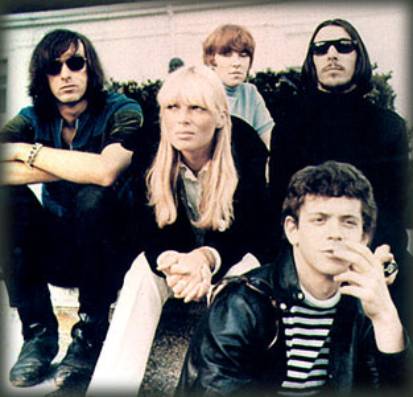On November 7, 1970, Mike Curb, president of MGM Records, announces that the company will sever ties with “18 acts who, in his opinion, promote and exploit hard drugs through music,” says Billboard magazine. Curb – who also leads his clean-cut Mike Curb Congregation pop group – is concerned after the drug-related deaths of Janis Joplin and Jimi Hendrix.
It’s an odd move that became even stranger in the weeks that followed. Among the artists that the label drops are the Velvet Underground, who did have a song titled “Heroin” on their 1967 debut album. But also Connie Francis and The Cowsills – neither associated with the drug culture. Frank Zappa is also said to be dropped even though he is not a drug user and he had already fulfilled his commitment to the label the year before. Former Animals lead singer Eric Burdon declares himself a drug user and asks to be dropped and isn’t.
Related: When Lou Reed played the White House

The Cowsills receive their gold record for “The Rain, the Park and Other Things” from MGM Records President Mort Nasatir, 1967. (Photo from Wikipedia)
Two weeks later in Billboard, Curb ups his ante by declaring the company “will not knowingly release any records that advocate the use of drugs or glamorize their usage.” But he says he will not name which 18 acts he refers to.
Meanwhile Columbia Records President Clive Davis also takes to the trade magazine’s pages to accuse Curb of engaging in an “artistic witch hunt” and also using the drug issue to cover up “the real reason that they don’t sell records.” He also accuses Curb of using his stance to cozy up to the Richard Nixon presidential administration. Radio consultant Bill Drake also tells Billboard that he supports Curb’s stand and urges the stations he works with to not play songs that promote drug use. But he also points out that as a consultant he can’t tell the stations he work with what to play, only advise them.
It’s big news in the industry and the mainstream media that turns out to be mainly a lot of noise. Curb does later run for lieutenant governor of California and wins a term, plus serves as National Co-Chairman of Ronald Reagan’s successful presidential campaign.
In 2022, three members of the Cowsills – Bob, Paul, and Susan – released their first studio album in 30 years, Rhythm of the World. Their recordings are available here.
Related: The label exec who got fired for trying to sign the Cowsills








4 Comments so far
Jump into a conversationWhile he was CA LG, Curb had the annoying habit of issuing executive orders as soon as Jerry Brown left the state for business that pretty much had to be rescinded as soon as Brown returned.
This also could have been a ploy to get the “parent” company to do something with the record division…..either invest more into it, or sell it outright.
As they say in Hollywood, “there’s not such thing as bad publicity”.
MGM wasn’t exactly the strongest label at the time, either. Many of their pop/rock acts had “run their course”, and really not that much on the label that was viable.
Problem is, that MGM, as a film company, was on the decline, too. May have been easier to get funds for strengthening their music division, had it not been for that.
This has always been a topic of curiosity for me.
I was initially under the impression that The Velvet Underground and The Mothers of Invention were sacked from MGM for drug reasons, but time has proven via Richie Unterberger’s 22 Myths and Realities about the Velvet Underground that this was not the case.
The Velvets had already left the label in April 1970 and released their final album with Lou Reed on Atlantic Records called “Loaded” in November 1970, which was around the time that the cuts were made public.
Frank Zappa, who himself was not a drug user, had already completed his obligations to MGM and he and Herb Cohen wasted no time in getting the Bizarre and Straight labels started.
MGM was also famous for issuing LPs labeled “Sounds Great in Stereo.” IF you could find it! Most were either in mono, or electronically re-channeled (which usually sounded awful). True stereo was hard to find on MGM back then.